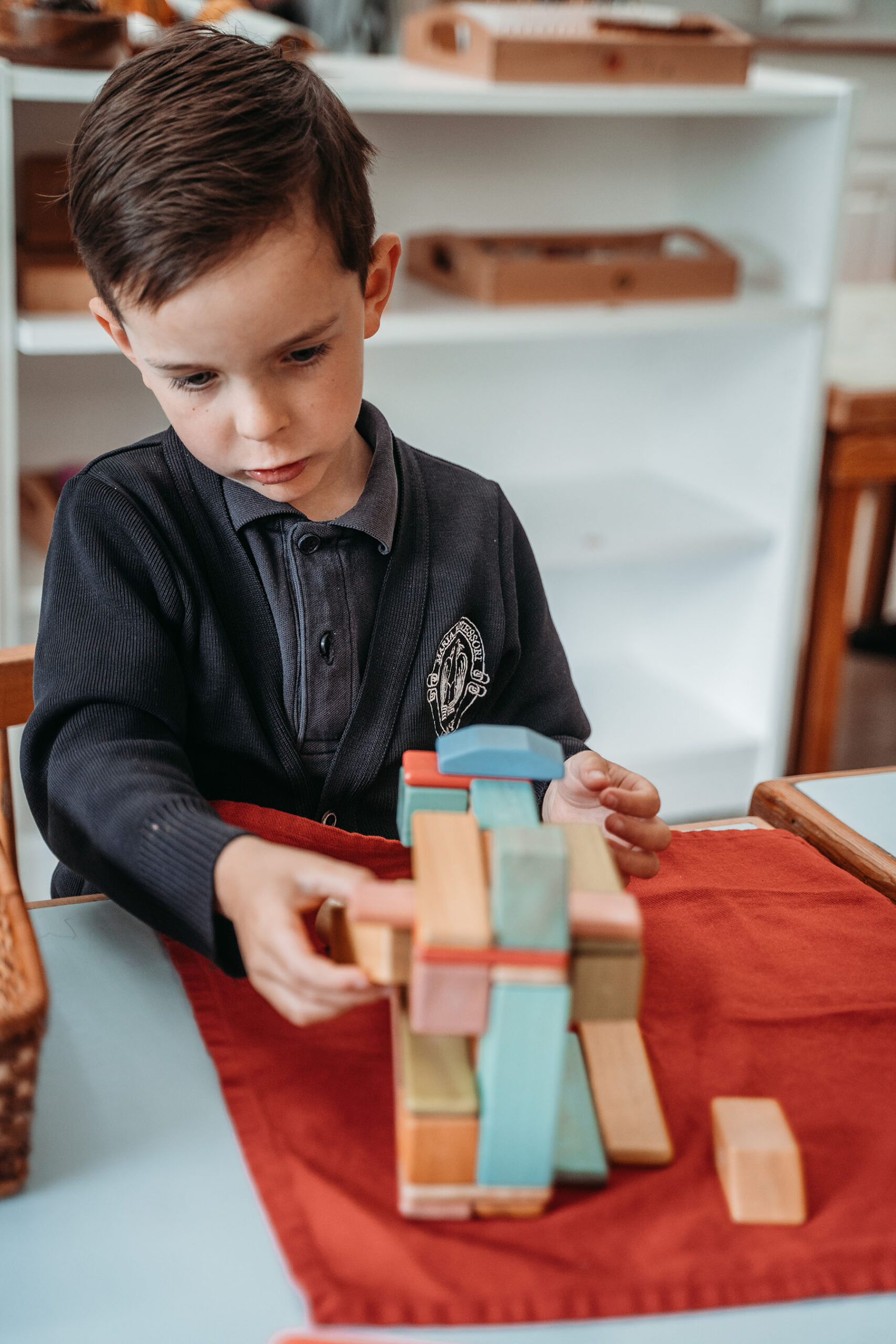Philosophy
The Montessori methodology refers to an educational approach established by Dr. Maria Montessori, the first woman to qualify as a physician in Italy (1896). Through her scientific observations and work with children, she developed a prepared environment and educational philosophy designed to meet the evolving needs of the developing child. This child-centered approach fosters a love of learning driven by intrinsic motivation. In this environment, the adult acts as a guide—linking the child to the environment and encouraging growth and self-initiated exploration.
In a Montessori classroom, learning begins with hands-on materials that provide concrete representations of abstract concepts. Step by step, the child progresses from the concrete to the abstract. Concepts are understood why they work before students are expected to grasp the theoretical. The emphasis is placed on the learning process over the final product, encouraging independent problem-solving. The child becomes a self-directed learner, not reliant on the adult’s focus. The teacher, as a guide, opens the door to the environment—enabling each child to reach their full potential.
Multi-age or "family groupings" reflect a natural social setting. Children reach developmental milestones at different times, and these groupings allow their individual needs to be met more effectively. Younger children are inspired and motivated by observing older peers, while older students serve as role models and often as teachers themselves. This fosters both confidence and cooperation
Montessori education is characterized by its emphasis on independence, freedom within limits, and respect for a child’s natural psychological development. Some essential elements of a Montessori classroom include:
- Mixed age classrooms
- Student choice within a structured range of activities
- Uninterrupted blocks of work time
- A constructivist or “discovery” model, where students learn by working with materials introduced by a guide (teacher)
- Specialized materials developed by Maria Montessori and her collaborators
These principles may sound idealistic, but one of the most powerful aspects of Montessori education is how consistently the philosophy on paper aligns with the philosophy in practice.

